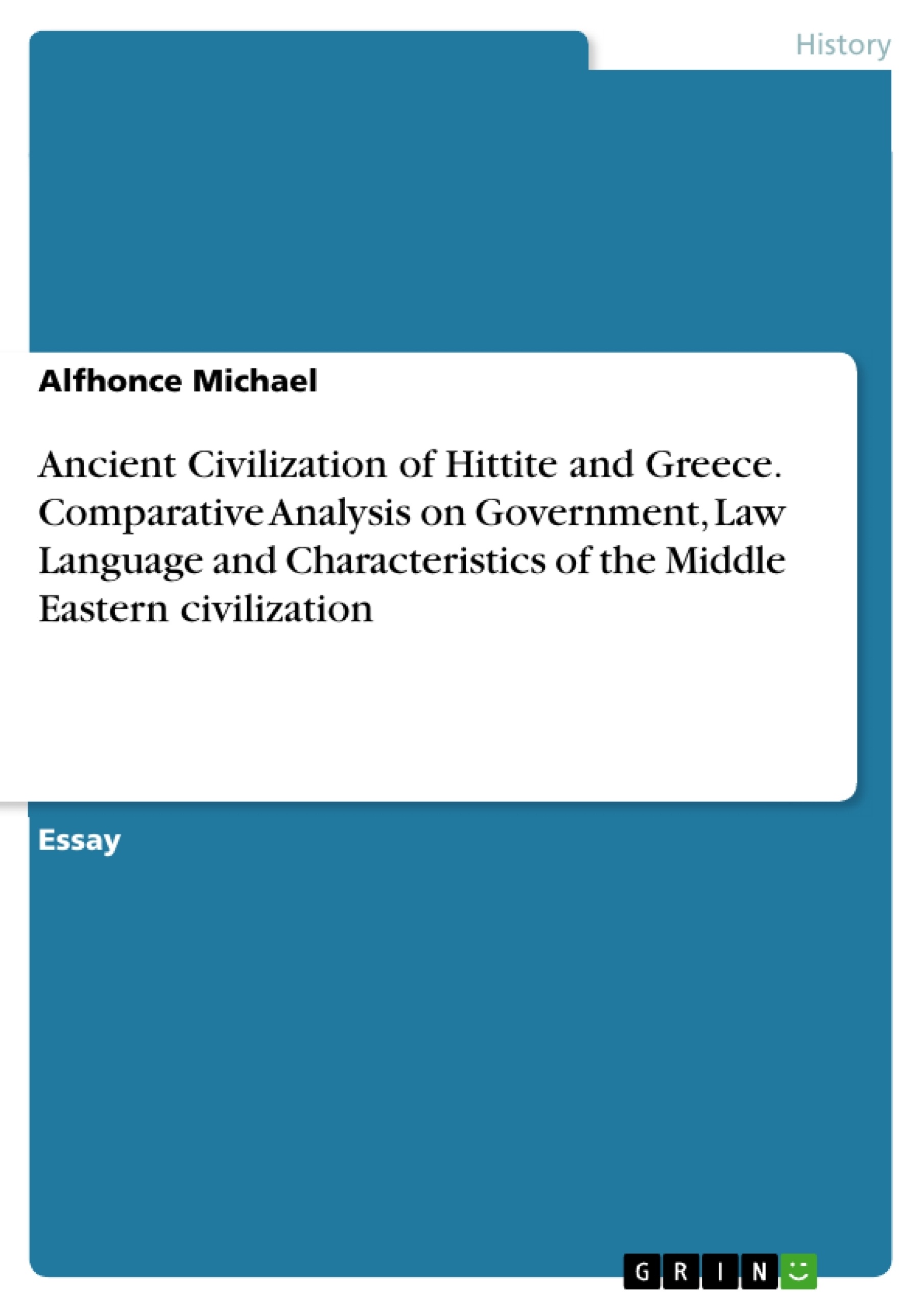This paper deals with the civilization of the Greeks and the Hittites.
It considers all aspects of the civilizations but especially what we know of law, literature and government: How do they compare? How are they different?
It lists some of the people who exemplify those characteristics of the civilization and how did they do so. Why does that person matter?
Table of Contents
- Civilization
- Hittite Civilization
- Hittite Kingship
- Hittite Law
- Greece Civilization
- Greek Government
- Greek Law
Objectives and Key Themes
This paper aims to analyze the similarities and differences between the early civilizations of the Hittites and the Greeks, specifically in the areas of law, literature, and government. It also examines the prominent personalities in these civilizations and their contributions to their respective societies.
- Comparative analysis of Hittite and Greek civilizations
- Exploration of legal systems and their development
- Examination of government structures and leadership
- Influence of prominent figures and their roles
- Contrasting social and cultural norms
Chapter Summaries
This paper starts by outlining the characteristics of ancient civilizations, highlighting the key elements that define them. It then delves into the specificities of the Hittite and Greek civilizations, providing historical background and examining the cultural and technological advancements of each. The paper analyzes the differences in their governmental structures, particularly focusing on the roles of kings and assemblies in the Hittite kingdom and the various forms of government in ancient Greece, including monarchies, oligarchies, tyrannies, and democracies.
Furthermore, the paper explores the development of legal systems in both civilizations, contrasting the Hittite approach with its emphasis on a codified body of law and the gradual evolution of Greek law, marked by the contributions of figures like Draco and Solon. It also examines the role of revenge and compensation in the legal systems of both civilizations.
Keywords
The main keywords and focus topics of this paper include ancient civilizations, Hittite civilization, Greek civilization, law, government, kingship, assemblies, legal systems, Draco, Solon, cultural differences, historical comparisons, prominent personalities, and societal development.
Frequently Asked Questions
What are the main similarities between Hittite and Greek civilizations?
Both civilizations developed complex legal systems, structured governments, and significant literary traditions that influenced their respective regions.
How did Hittite kingship differ from Greek government?
Hittite government was primarily a monarchy with a central king, whereas ancient Greece explored various forms including monarchy, oligarchy, and early democracy.
Who were Draco and Solon in Greek history?
Draco and Solon were key figures in the development of Greek law; Draco is known for his harsh codes, while Solon introduced reforms that moved Athens toward democracy.
What was a central feature of Hittite law?
Hittite law was notable for its emphasis on compensation rather than purely retributive punishment (revenge).
Why does the study of these ancient civilizations matter today?
Analyzing their legal and governmental structures provides insight into the foundations of Western and Middle Eastern societal development.
- Arbeit zitieren
- Doctor Alfhonce Michael (Autor:in), 2016, Ancient Civilization of Hittite and Greece. Comparative Analysis on Government, Law Language and Characteristics of the Middle Eastern civilization, München, GRIN Verlag, https://www.grin.com/document/373284



